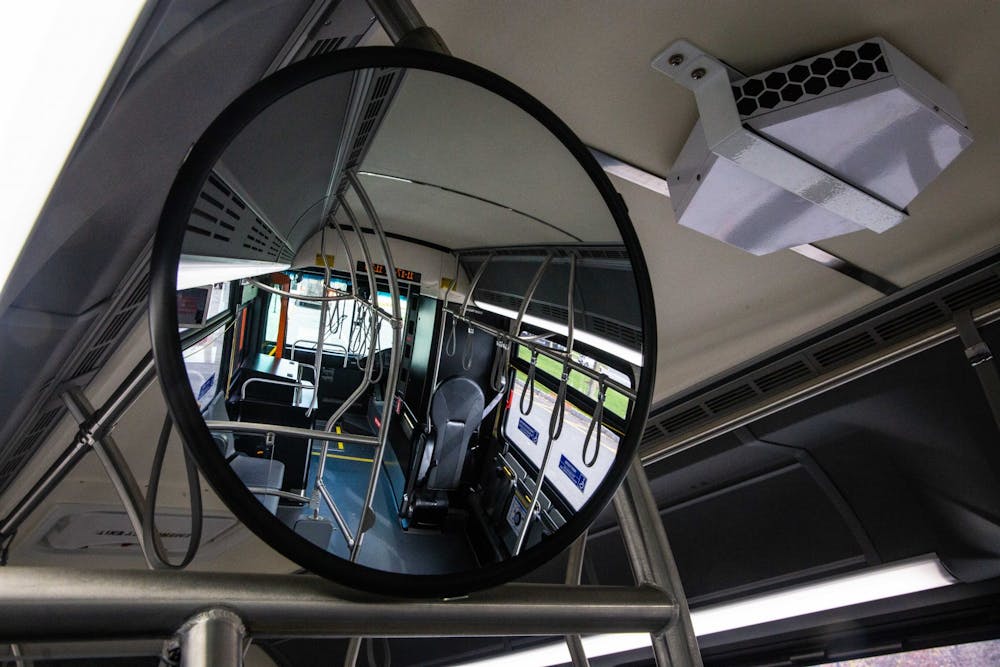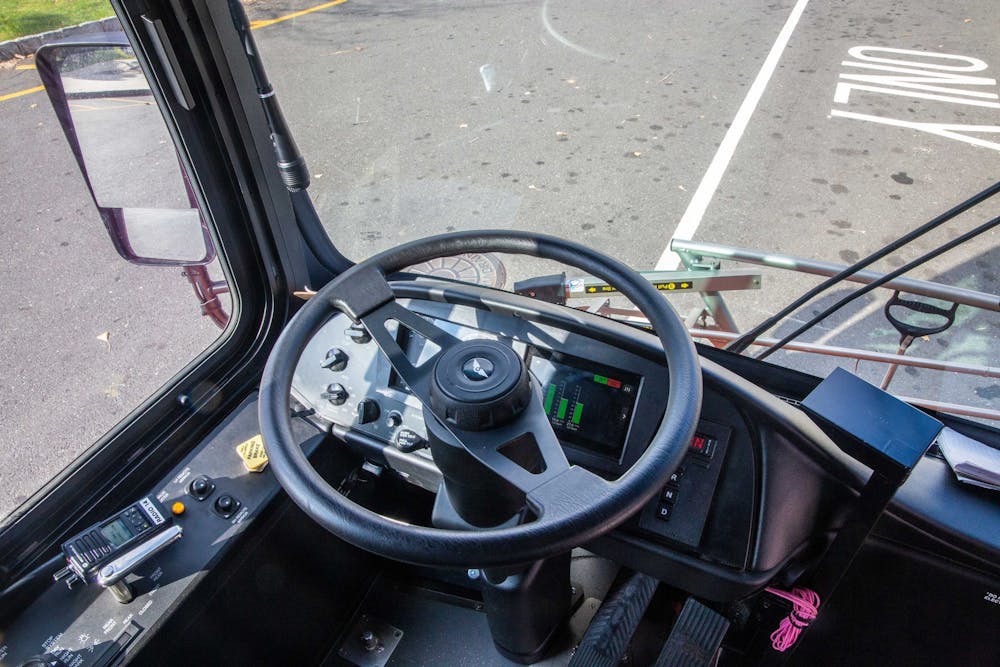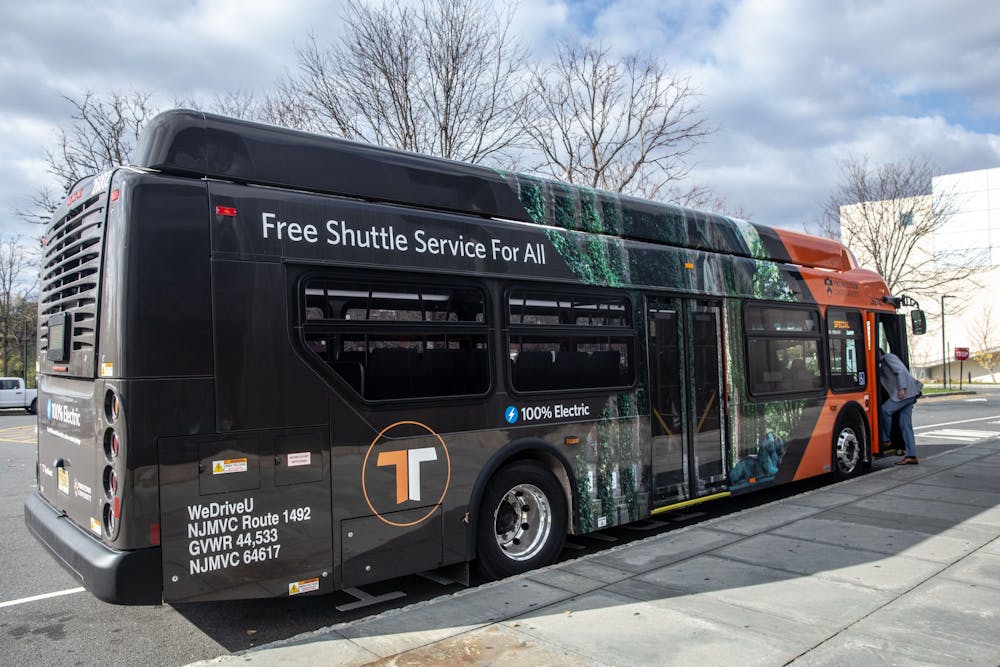The University’s first all-electric bus was deployed late last month, with 16 more scheduled to be put into service through February as the campus transitions to a fully electric fleet.
These 16 additional electric vehicles are expected to arrive within these three months and will be ready for use by the Princeton community in the coming months once they are received and the charging infrastructure is completed.
The bus fleet is among the first steps that the University has taken in an overarching effort to reach net zero carbon emissions by 2046.
In an interview with The Daily Princetonian, Charlie Tennyson, head of Transportation and Parking Services (TPS) shared an analogy for the transition between the old and new busses: “[It’s] like stepping out of a 1997 beat up car and stepping into a brand new Tesla.”
According to Tennyson, all TPS drivers have gone through robust training to aid the transition to electric buses. He said he is hopeful that by the end of the academic year, the entire bus fleet will be electric.

The view inside of a University bus
Alexander Moravcsik / The Daily Princetonian

The new buses are the result of TPS’s 2019-2020 campus mobility framework project, which solicited the perspective of community members on transportation options on and around campus.
“Vehicles operate on public roads, so we really value community attitude,” Tennyson said. The transition comes at a time when electric vehicles are becoming more mainstream, and the electric market is becoming more affordable, according to The New York Times.
Tennyson said that the introduction of electric buses on Princeton’s campus will offer advantages compared to the buses currently in use.
“[The electric vehicles] have so many benefits: less noise; a screen at the front will display each stop – nothing like that exists currently, there aren’t event stop requests on the buses – stops will be announced out loud; it’ll be a smoother ride; there will be USB chargers throughout, accessibility and inclusion experience improves,” he said.

According to Tennyson, many universities have begun electrifying their bus fleets, but Princeton is one of the only ones that has committed to electrifying all — as opposed to a few — of its buses. Moreover, NJ Transit introduced its first electric bus into service in October of this year.
Tennyson said that this transition will allow the University to serve as a model for peer institutions. He added that the biggest challenge in a transition of this magnitude is addressing various logistical questions, such as how big the buses should be, how big of a battery is needed, how long they can be on the road, and determining where to place charging locations.

A driver’s seat in an electric bus
Alexander Moravcsik / The Daily Princetonian
The reason many institutions haven’t done this is because “there is no clear answer to these questions,” Tennyson said.
The University hopes to provide a “playbook we get to share with the community,” he said.
Tennyson shared that while the cost of purchase for electric buses is higher than that of diesel buses, the life-time expenses are similar.
This initiative will reduce carbon dioxide emissions by 500 metric tons, out of the current 102,000 metric tons emitted annually by the University. According to Tennyson, the transition will have “a direct impact on air quality and will translate to a much better experience for bike riders and pedestrians.”
Correction: A previous version of this piece stated that the 16 additional buses had already been received by the University. In fact, they will arrive over the course of the next three months.
Abby Leibowitz is a news contributor for the ‘Prince.’
Please direct any corrections requests to corrections at dailyprincetonian.com.








